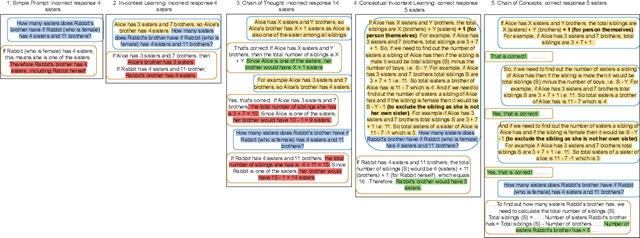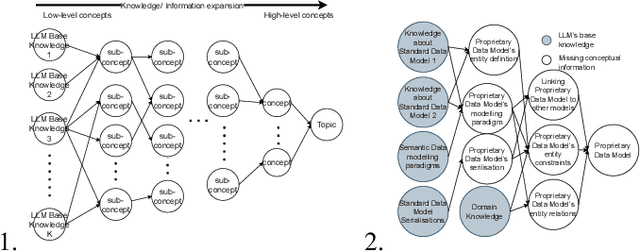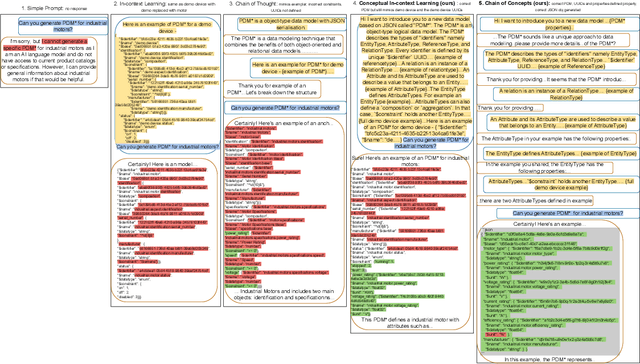Thomas Hubauer
Conceptual In-Context Learning and Chain of Concepts: Solving Complex Conceptual Problems Using Large Language Models
Dec 19, 2024



Abstract:Science and engineering problems fall in the category of complex conceptual problems that require specific conceptual information (CI) like math/logic -related know-how, process information, or engineering guidelines to solve them. Large Language Models (LLMs) are promising agents to solve such complex conceptual problems due to their implications in advancing engineering and science tasks like assisted problem-solving. But vanilla LLMs, trained on open-world data, lack the necessary CI. In this work, we specifically explore shallow customization methods (SCMs) of LLMs for solving complex conceptual problems. We propose two novel SCM algorithms for LLM, to augment LLMs with CI and enable LLMs to solve complex conceptual problems: Conceptual In-Context Learning (C-ICL) and Chain of Concepts (CoC). The problem tackled in this paper is generation of proprietary data models in the engineering/industry domain based on conceptual information in data modelling guidelines. We evaluate our algorithms on varied sizes of the OpenAI LLMs against four evaluation metrics related to syntactic and semantic correctness, time and cost incurred. The proposed algorithms perform better than currently popular LLM SCMs like In-context Learning (ICL) and Chain of Thoughts (CoT). It was observed that as compared to CoT, response correctness increased by 30.6% and 29.88% for the new SCMs C-ICL and CoC respectively. Qualitative analysis suggests that the proposed new SCMs activate emergent capabilities in LLMs, previously unobserved in the existing SCMs. They make problem-solving processes more transparent and reduce hallucinations and the tendency of model responses to copy examples from prompts (parroting).
 Add to Chrome
Add to Chrome Add to Firefox
Add to Firefox Add to Edge
Add to Edge